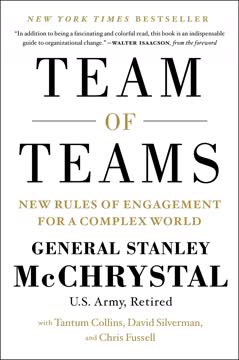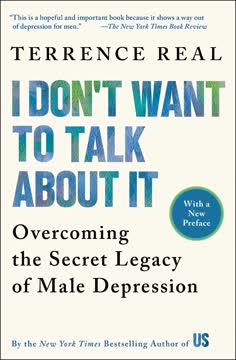Key Takeaways
1. Aging affects the brain, but cognitive decline is not inevitable
Although it's unlikely you'll reclaim the mental sharpness of your 25-year-old brain, that doesn't mean you're destined to lose your marbles, either.
Normal aging changes: The brain naturally changes with age, affecting processing speed, attention, and some types of memory. However, many cognitive abilities remain stable or even improve with age. Crystallized intelligence, which includes accumulated knowledge and experience, often increases throughout life.
Cognitive reserve: The brain's ability to compensate for age-related changes depends on cognitive reserve, built through education, stimulating activities, and healthy lifestyle choices. People with higher cognitive reserve can maintain better cognitive function despite physical changes in the brain.
Stable or improving abilities with age:
- Vocabulary
- General knowledge
- Emotional regulation
- Wisdom and judgment
2. A healthy lifestyle can significantly reduce Alzheimer's risk
You have more control over your brain health than you may have ever thought possible.
Modifiable risk factors: Research has identified numerous lifestyle factors that can influence the risk of developing Alzheimer's disease and other forms of dementia. By addressing these factors, individuals can potentially reduce their risk by up to 40%.
Holistic approach: The most effective strategy for maintaining brain health involves a combination of healthy habits, including diet, exercise, stress management, social engagement, and cognitive stimulation. This multi-faceted approach addresses various aspects of brain health and provides synergistic benefits.
Key lifestyle factors for brain health:
- Nutritious diet
- Regular physical exercise
- Quality sleep
- Stress management
- Social engagement
- Cognitive stimulation
- Cardiovascular health
- Management of chronic conditions
3. The MIND diet combines Mediterranean and DASH diets for optimal brain health
The MIND diet appears to deliver, according to a study published in Alzheimer's & Dementia.
MIND diet basics: The Mediterranean-DASH Intervention for Neurodegenerative Delay (MIND) diet combines elements of the Mediterranean and DASH diets, focusing on foods shown to benefit brain health. It emphasizes whole foods, particularly vegetables, berries, nuts, whole grains, fish, and olive oil, while limiting red meat, butter, cheese, pastries, and fried foods.
Evidence-based benefits: Studies have shown that adherence to the MIND diet is associated with slower cognitive decline and reduced risk of Alzheimer's disease. Even moderate adherence to the diet can provide significant benefits, making it a practical and flexible approach to brain-healthy eating.
Key components of the MIND diet:
- Green leafy vegetables: 6+ servings/week
- Other vegetables: 1+ serving/day
- Berries: 2+ servings/week
- Nuts: 5+ servings/week
- Olive oil as primary cooking oil
- Whole grains: 3+ servings/day
- Fish: 1+ serving/week
- Beans: 3+ servings/week
- Poultry: 2+ servings/week
- Wine: 1 glass/day (optional)
4. Regular exercise boosts brain volume and cognitive function
Exercise was found to slash the risk of Alzheimer's by more than 60 percent.
Physical activity benefits: Regular exercise, particularly aerobic activities like brisk walking, has been shown to increase brain volume, improve cognitive function, and reduce the risk of dementia. Exercise stimulates the production of brain-derived neurotrophic factor (BDNF), which promotes the growth and survival of neurons.
Practical recommendations: Aim for at least 150 minutes of moderate-intensity aerobic exercise per week, combined with strength training exercises twice a week. Even small increases in physical activity can provide significant benefits, so start with manageable goals and gradually increase intensity and duration.
Brain benefits of exercise:
- Increased hippocampal volume
- Improved executive function
- Enhanced memory
- Better processing speed
- Reduced risk of cognitive decline
- Increased BDNF production
5. Stress management and quality sleep are crucial for brain health
Chronic stress can lead to heart disease, high blood pressure, diabetes, and obesity.
Stress and sleep impact: Chronic stress and poor sleep quality can negatively affect brain health, leading to inflammation, reduced cognitive function, and increased risk of dementia. Managing stress and prioritizing good sleep hygiene are essential for maintaining optimal brain function.
Effective strategies: Techniques such as mindfulness meditation, deep breathing exercises, and regular physical activity can help reduce stress levels. Establishing a consistent sleep schedule, creating a relaxing bedtime routine, and optimizing the sleep environment can improve sleep quality.
Stress management techniques:
- Mindfulness meditation
- Deep breathing exercises
- Progressive muscle relaxation
- Regular physical activity
- Time in nature
- Social support
Sleep hygiene tips:
- Consistent sleep schedule
- Relaxing bedtime routine
- Dark, quiet, cool bedroom
- Limit screen time before bed
- Avoid caffeine and alcohol near bedtime
6. Social engagement and purposeful activities build cognitive reserve
A strong sense of purpose may blunt the harmful effects of the brain plaques and tangles linked to Alzheimer's.
Social connections: Maintaining strong social relationships and engaging in regular social activities can help protect against cognitive decline. Social interaction stimulates various cognitive processes and provides emotional support, which can buffer against stress and depression.
Purpose and meaning: Engaging in purposeful activities and having a sense of meaning in life have been associated with better cognitive function and reduced risk of dementia. Volunteering, pursuing hobbies, and setting meaningful goals can contribute to cognitive reserve and overall well-being.
Benefits of social engagement:
- Stimulates cognitive processes
- Provides emotional support
- Reduces stress and depression
- Encourages healthy behaviors
- Builds cognitive reserve
Ways to find purpose and meaning:
- Volunteering
- Mentoring
- Pursuing creative hobbies
- Setting and working towards goals
- Engaging in lifelong learning
7. Lifelong learning and novel experiences promote neuroplasticity
Learning a second language may help you recover from a stroke, too.
Brain plasticity: The brain remains capable of forming new neural connections and adapting throughout life, a process known as neuroplasticity. Engaging in lifelong learning and seeking out novel experiences can help maintain and even enhance cognitive function as we age.
Cognitive stimulation: Activities that challenge the brain, such as learning a new language, playing a musical instrument, or solving complex puzzles, can help build cognitive reserve and promote brain health. The key is to continually challenge yourself with new and varied experiences.
Brain-stimulating activities:
- Learning a new language
- Playing a musical instrument
- Engaging in creative arts
- Solving puzzles and brain teasers
- Taking up a new hobby or skill
- Traveling to new places
8. Cardiovascular health is closely linked to brain health
Every heart-healthy action you take may benefit your brain, too.
Heart-brain connection: The health of the cardiovascular system directly impacts brain health. Factors that increase the risk of heart disease and stroke, such as high blood pressure, high cholesterol, and diabetes, also increase the risk of cognitive decline and dementia.
Vascular health: Maintaining healthy blood vessels is crucial for optimal brain function. Regular exercise, a heart-healthy diet, and management of cardiovascular risk factors can help protect both heart and brain health.
Cardiovascular risk factors to manage:
- High blood pressure
- High cholesterol
- Diabetes
- Obesity
- Smoking
- Physical inactivity
9. Managing chronic conditions helps protect cognitive function
Even if you have a family history of AD, there's plenty you can do to protect your brain health.
Chronic disease impact: Conditions such as diabetes, high blood pressure, and obesity can significantly increase the risk of cognitive decline and dementia. Properly managing these conditions through lifestyle changes and appropriate medical care is essential for maintaining brain health.
Preventive strategies: Regular health screenings, adherence to prescribed medications, and lifestyle modifications can help prevent or manage chronic conditions. Working closely with healthcare providers to develop personalized management plans is crucial for protecting both overall health and cognitive function.
Chronic conditions linked to cognitive decline:
- Type 2 diabetes
- Hypertension
- Obesity
- Depression
- Sleep apnea
- Hearing loss
10. Early detection and intervention can slow cognitive decline
Even if you don't have significant memory loss, it's possible to distinguish normal, age-related memory glitches from dementia or AD.
Importance of early detection: Recognizing the early signs of cognitive decline and seeking prompt medical evaluation can lead to earlier intervention and potentially better outcomes. Many treatable conditions can mimic dementia symptoms, making accurate diagnosis crucial.
Interventions: Early interventions, including lifestyle modifications, cognitive training, and in some cases, medications, may help slow the progression of cognitive decline. Regular cognitive assessments and open communication with healthcare providers can facilitate early detection and timely intervention.
Early signs of cognitive decline:
- Difficulty with familiar tasks
- Problems with planning or problem-solving
- Memory loss that disrupts daily life
- Confusion with time or place
- Trouble understanding visual images or spatial relationships
- New problems with words in speaking or writing
- Misplacing things and inability to retrace steps
- Decreased or poor judgment
- Withdrawal from work or social activities
- Changes in mood or personality
Last updated:
FAQ
What's Ageless Brain about?
- Focus on Brain Health: Ageless Brain by Julia VanTine emphasizes maintaining cognitive health as we age, offering strategies to lower brain age and enhance memory and thinking skills.
- Lifestyle Changes: It highlights the impact of diet, exercise, and mental stimulation on brain health, aiming to reduce the risk of Alzheimer’s and other dementias.
- Research-Backed Insights: The book is grounded in scientific research, providing practical advice based on studies linking lifestyle factors to cognitive decline.
Why should I read Ageless Brain?
- Empowerment Through Knowledge: The book empowers readers by showing that lifestyle choices can prevent or delay cognitive decline.
- Comprehensive Guide: It offers a wealth of information on brain health, including research findings and practical tips for everyday life.
- Accessible and Engaging: Julia VanTine presents complex scientific concepts in an engaging manner, making it accessible for all readers.
What are the key takeaways of Ageless Brain?
- Five Pillars of Brain Health: The SHARP method includes Savor Brain-Boosting Foods, Hit the Walking Trail or Gym, Adjust Your Attitude, Reduce Brain-Shrinking Stress, and Preserve Your Wits with Play.
- Dietary Recommendations: Emphasizes a plant-based diet rich in whole grains, fruits, vegetables, nuts, and healthy fats for better cognitive function.
- Exercise Benefits: Highlights regular physical activity as crucial for brain health, with evidence showing it can reduce Alzheimer’s risk by up to 66%.
What are the best quotes from Ageless Brain and what do they mean?
- "You have more control...": This quote encapsulates the empowering message that lifestyle choices significantly influence cognitive health.
- "Action will. You can use...": Emphasizes the importance of proactive steps based on scientific research to protect brain health.
- "Your brain ages along...": Reminds that cognitive decline is natural but can be mitigated through healthy habits.
What is the SHARP method in Ageless Brain?
- Savor Brain-Boosting Foods: Encourages a diet rich in brain-healthy foods like leafy greens and berries for improved cognitive function.
- Hit the Walking Trail or Gym: Regular physical activity is essential for brain health, significantly reducing cognitive decline risk.
- Adjust Your Attitude: A positive mindset and social connections are crucial for cognitive health, helping mitigate stress and promote resilience.
How does diet affect brain health according to Ageless Brain?
- Plant-Based Focus: Advocates for a diet rich in antioxidants, vitamins, and healthy fats to protect against cognitive decline.
- MIND Diet: Combines elements of the Mediterranean and DASH diets, targeting foods that reduce Alzheimer’s risk.
- Specific Foods to Include: Recommends whole grains, leafy greens, nuts, berries, and fish for better brain health.
What role does exercise play in maintaining cognitive function in Ageless Brain?
- Increased Blood Flow: Exercise enhances blood circulation to the brain, ensuring it receives necessary oxygen and nutrients.
- Brain-Derived Neurotrophic Factor (BDNF): Physical activity boosts BDNF levels, supporting neuron health and new brain cell growth.
- Cognitive Benefits: Linked to improved memory, attention, and processing speed, reducing Alzheimer’s risk by up to 66%.
How does Ageless Brain address the impact of stress on cognitive health?
- Chronic Stress Effects: Explains that chronic stress can lead to brain shrinkage and cognitive decline, affecting memory and decision-making.
- Mindfulness Techniques: Introduces mindfulness practices like deep breathing and meditation to reduce stress levels and improve mental health.
- Coping Strategies: Provides strategies to manage stress effectively, changing perceptions to mitigate harmful effects on the brain.
How can I assess my current brain health lifestyle using Ageless Brain?
- Ageless Brain Quiz: Includes a quiz to evaluate lifestyle habits related to diet, physical activity, mental attitude, stress management, and mental stimulation.
- Identify Weaknesses: Helps readers identify areas needing improvement and focus on specific strategies to enhance brain health.
- Track Progress: Encourages keeping a record of lifestyle changes and improvements to see progress over time.
What are some common myths about Alzheimer’s addressed in Ageless Brain?
- Myth: Memory Loss is Normal Aging: Clarifies that significant memory loss is not normal and may indicate conditions like Alzheimer’s.
- Myth: Alzheimer’s is Inevitable: Emphasizes that lifestyle choices can significantly influence the likelihood of developing Alzheimer’s.
- Myth: Only Older Adults are Affected: Points out that Alzheimer’s can affect individuals in their 40s and 50s, with early intervention beneficial.
How does Ageless Brain suggest improving emotional resilience?
- Gratitude Practices: Recommends writing down things you are grateful for to shift focus from negative to positive, enhancing resilience.
- Daily Acts of Kindness: Encourages serving someone daily to foster connection and purpose, improving mental health and resilience.
- Building a Support Network: Emphasizes the importance of social support in developing resilience, providing emotional backing during tough times.
How can I find my life’s purpose as suggested in Ageless Brain?
- Self-Reflection Questions: Provides questions to help identify passions and what brings joy, guiding individuals toward discovering their purpose.
- Explore New Activities: Encourages trying new hobbies to uncover hidden talents and interests, leading to unexpected self-discoveries.
- Connect with Others: Emphasizes social connections in finding purpose, with volunteering or group activities providing insights into what truly matters.
Review Summary
Ageless Brain receives mixed reviews, averaging 3.55 out of 5 stars. Readers appreciate its comprehensive information on brain health and Alzheimer's prevention, backed by scientific research. Many find it a good starting point for those new to the topic, offering practical advice on diet, exercise, and lifestyle changes. However, some criticize its repetitive nature and lack of new information for those already familiar with brain health. The book's easy-to-understand language and organization are praised, while its writing style is occasionally described as cheesy or dated.
Similar Books










Download PDF
Download EPUB
.epub digital book format is ideal for reading ebooks on phones, tablets, and e-readers.




